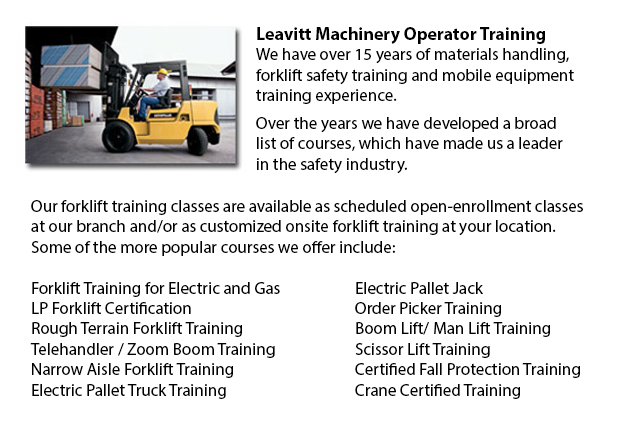
Forklift Certification Schools Goodyear - Within North America, forklift certification is mandatory, making forklift training programs necessary for both the business and their workers working as forklift operators. Forklift training focuses on safety and health concerns included in making use of forklifts. Safety issues affect both the forklift operator and workers and other people who are near the forklift. Businesses could be subject to penalties if they are caught with un-certified operators during a check up. There are many compelling reasons why businesses need to comply with forklift standards.
Nearly all federal, state, and provincial regulations require an employee evaluation of the skills required for forklift safety before the employer signs off that the worker is certified. There are numerous ways to obtain forklift training for workers, like on-line forklift training. Then again, employers must know that forklift certification training is not "just a test". Proper forklift training should include various fields of study, including theory and hands-on practice. Rules do not need employers to have an outside organization to certify forklift operators.
The recommended program for a quality forklift certification service includes both an onsite component and classroom training. Classroom training normally features informative sessions with videos, power point presentations, models and discussions. Students usually are required to write a test to check for understanding of subject matter. Certificates of completion are issued upon successful completion of the class.
The use of the equipment evaluation requires the trainee to know the job site hazards, pre-operational machine check, a pass/fail operational test and operational instruction.
Training usually includes the following subject areas: Controls & Instrumentations; Understanding legislations and regulations; Steering and Maneuvering; Engine Operation and Maintenance; Visibility, Fork & Attachment Restrictions; Rated Capacities, Stability, Maintenance & Inspection; Load Manipulation; Refueling; Hazardous Locations & Rough Terrain Operations and Pedestrians. Moreover, there are training courses offered for workers who are transitioning to new job positions.
-
Crane / Overhead Crane / Truck Mounted Crane / Hydraulic Cranes Training in Goodyear
Bridge cranes or likewise called overhead cranes are a kind of industrial material handling crane making use of a line and hook device that runs on a horizontal beam running along two widely separated rails. Many overhead cranes can be seen inside a... More -
Fantuzzi Parts
The Italian Fantuzzi Group offers a glut of material handling equipment and heavy machinery. The equipment consists of numerous equipment specializing in transporting, loading and unloading goods. The railway freight sector and the port authority req... More -
Forklift Training School Goodyear
Forklift Training School Goodyear - Why A Forklift Training School Could Actually Help A Business And Its Employees - CSA and OSHA establish criteria for forklift safety training that meets existing regulations and standards. Anyone intending to oper... More -
Warehouse Forklift Training Classes Goodyear
Warehouse Forklift Training Classes Goodyear - The purpose of warehouse training classes are to raise the awareness of common workplace hazards. The trainees would learn necessary warehouse safety measures. An emphasis is placed on paying attention t... More -
Aerial Lift Ticket Goodyear
Aerial Lift Ticket Goodyear - A boom truck is frequently recognized by the cable and phone business vehicles that have the long arm folded over their roofs. Usually, a bucket-like apparatus sits at the extension of extendable arms. Sometimes termed a... More -
Telehandler Ticket Goodyear
Telehandler Ticket Goodyear - The telescopic handler or telehandler is a generally used equipment in agricultural and industrial applications. This machine is similar in look to a forklift and even works in a similar way, even though telehandlers are... More -
Scissor Lift Safety Training Goodyear
Scissor Lift Safety Training Goodyear - A Scissor Lift is a practical type of platform that normally moves in a vertical direction. The equipment is capable of this movement because of the use of folding supports that are linked in a criss-cross patt... More -
Aerial Boom Lift Training Goodyear
Aerial Boom Lift Training Goodyear - For individuals who operate or supervise the use of aerial lift platforms, right aerial boom lift Training is necessary. The aerial lift platform is for lifting individuals, materials and tools to elevated work lo... More

Forklift Training Goodyear
TOLL FREE: 1-888-254-6157
Goodyear, Arizona
forkliftcertificationgoodyear.com
Email Us
About Us


